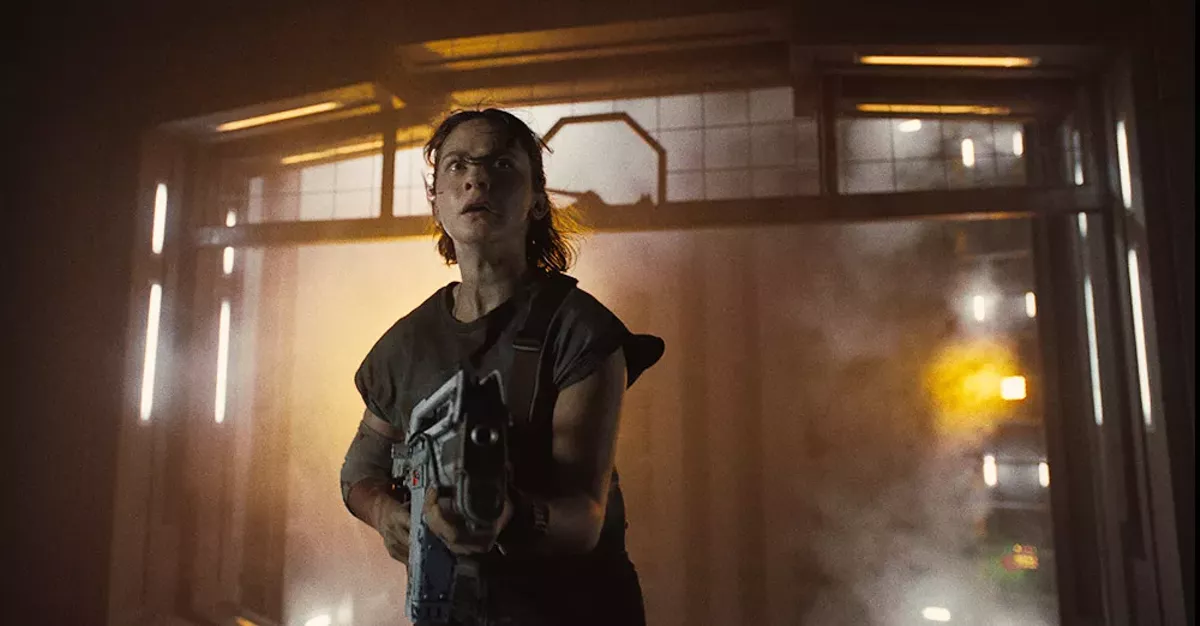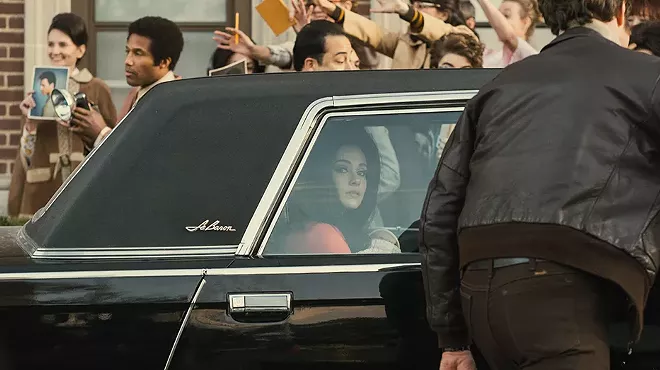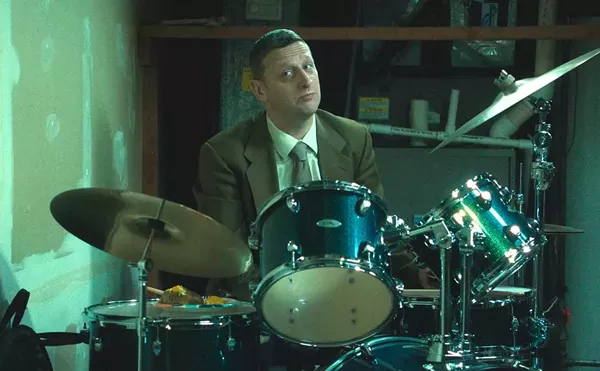‘Alien: Romulus’ shows there’s still plenty of life left in this franchise
Director Fede Álvarez has not only made an intensely violent and visually gorgeous ‘Alien’ sequel, but also something that fits nicely between the two originals


Audio By Carbonatix
[
{
"name": "GPT - Leaderboard - Inline - Content",
"component": "35519556",
"insertPoint": "5th",
"startingPoint": "3",
"requiredCountToDisplay": "3",
"maxInsertions": 100,
"adList": [
{
"adPreset": "LeaderboardInline"
}
]
}
]
Depending on what you think of the Alien franchise, the following statement will either sound like a huge compliment or damning with faint praise: Alien: Romulus is the third best film of the franchise by a hair.
Set between Ridley Scott’s 1979’s seminal sci-fi/horror masterpiece Alien and James Cameron’s 1986 action extravaganza Aliens, director Fede Álvarez has not only made an intensely violent and visually gorgeous Alien sequel, but also something that fits nicely between the two originals. It has some pretty glaring and, frankly, baffling flaws, but it’s pretty damn fun anyway.
Starring Cailee Spaeny who, after playing Priscilla Presley in Sophia Coppola’s Priscilla, a wide-eyed photojournalist way in over her head in Civil War, a young male quantum scientist in Devs, and now a hard luck space orphan in Alien: Romulus, is doing one hell of a job reinventing herself with every role she chooses.
Spaeny carries Romulus with effortless charisma as Rain, an orphan who, along with her “brother” Andy (played by the film-stealing David Jonsson), a synthetic human programmed to take care of her, is desperate to escape the indentured servitude the two besties find themselves in on the sunless colony of Jackson’s Star. Along with a handful of poor and desperate young miners like herself, Rain and David head to a massive, derelict Weyland-Yutani space station, the Romulus and Remus, where they hope to find cryo chambers that would allow them to escape their star system and lives of servitude. Things obviously go very poorly because this is an Alien movie.
That’s pretty much it. You’ve got six good looking young adults on a derelict space station fighting for their lives against some old-fashioned Chestbursters, Facehuggers, and Xenomorphs. The heart of the movie rests with Rain and her robot brother Andy, whose dynamic together is sweet, complicated and human.
In fact, all of the characters are compelling in different ways, making their impending, horrifically violent deaths more affecting than one really expects. Álvarez and his co-writer Rodo Sayagues do a nice job creating characters we not just root for, but find pieces of ourselves within.
What’s really counterintuitive, though, is that the aspects of the film that work the best exist right next to the aspects that don’t, but Álvarez still manages to keep everything moving so quickly and anxiously that things never threaten to fall off the rails. From the opening frame of the movie, Alien: Romulus not only feels like an Alien movie from its DNA outward, it also looks and sounds like a direct sequel to Ridley Scott’s 1979 original.
The tech, the design, H.R. Giger’s iconic creature design, the score, the cinematography, and the character work all feel deeply reverent to the original film and you can tell Álvarez wants his movie to play directly alongside Scott’s masterpiece.
This also leads to the film’s biggest problem: not all of the callbacks and easter eggs work very well. Nostalgia is just not a good enough reason to make a direct sequel to a beloved movie. I feel like the legacy sequels to Halloween, Exorcist, and Ghostbusters have successfully proved that there needs to be an existential purpose for them to work.
In fact, there’s a direct plot point involving a character from Alien that looks like it was done with some very subpar deepfake technology that doesn’t even come close to bridging the uncanny valley. It’s befuddling, because it would have been easy to write around this choice and it only exists to remind people of the original — but not in a good way.
With not just this, but also some directly repeated iconic lines and a third act that repeats Alien’s ending almost beat-by-beat, Álvarez’s reverence for the original weakens Romulus on a story level, while simultaneously strengthening it on a design and aesthetic one. Álvarez is a talented filmmaker and doesn’t need to rely on nostalgia to make a good movie. His Evil Dead reboot was nothing like the other ones and was stronger for it.
While Alien: Romulus doesn’t really hold a candle to Alien or Aliens, it’s still easily the most intense movie I’ve seen so far this year and held me gripped to my chair for almost the entire running time. It doesn’t exist solely for nostalgia and genuinely wants to scare entire poops from the audience.
While there are a few terrible choices throughout, the escalation of terror and the anxiety-inducing, visceral horror really keep the movie’s claws pretty deep into your spine throughout. On top of that, the genuinely disturbing practical effects and the star-making performance from Jonsson are so awesome that it’s easy to look past the film’s faults.
I’m not sure I followed exactly all of the twisty-turny plot machinations that popped up throughout the story, but I still enjoyed trying to understand them. Perhaps there are some deleted scenes that might make the story congeal a little better or if every question I have will be answered in the inevitable sequel. Basically, I think I have the definition of mixed feelings.
Alien defined a genre and Aliens is one of the most entertaining movies ever made, so holding Romulus to that standard is somewhat unfair, but Álvarez and team do enough right for me to genuinely hope we get another film in the franchise that picks up directly after this one. No matter what happens, Romulus proves there’s still plenty of (alien) life left in the franchise and that the Xenomorph is just as iconic of a slasher as Michael Myers or Jason Voorhees. Except with acid instead of blood.








